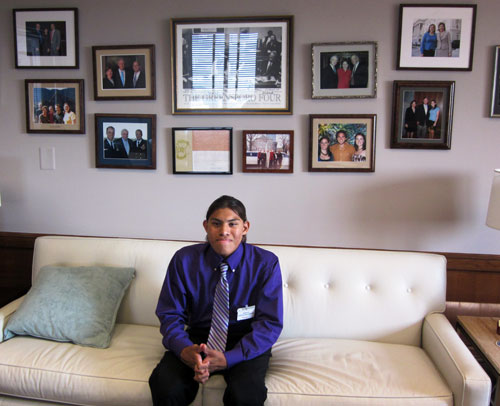Another Great Opportunity to Inspire Others With Your Story!
We’ve all heard it said a picture is worth a thousand words, but what about words themselves? How much is a story worth, what about your own story of advocacy? As it turns out, quite a lot! The stories we share have a way of changing the way we understand our world and help us to reframe our perspective about the good, the bad and the ugly aspects of our lives. They inspire and uplift, make us think beyond our own experiences and challenge us to make changes. One person’s story can create a chain reaction of powerful advocacy at the community, state or even national level.
That’s why The Arc is excited to be working on a project with the Genetic Alliance, the world’s leading nonprofit health advocacy organization that includes a network of more than 1,000 disease-specific advocacy organizations and is the voice of advocacy in genetics. The Genetic Alliance, with input and support from The Arc and Family Voices, recently launched an online questionnaire that asks experienced family advocates to share their advocacy journey, including how they developed certain skills and created opportunities to influence systems. Their experiences will be turned into stories that inspire and encourage others to take action and improve the lives of people with disabilities and their families.
The goal is that by collecting these stories into a single publication and identifying the common themes throughout the stories, Moms and Dads, siblings and friends, and people with disabilities themselves can begin to have a better understanding of how to influence their own path in advocacy. The online questionnaire closes on Friday, August 19th. Parents (biological, adoptive, or foster), siblings, grandparents, other relatives, caregivers, and those with a health condition or disability are all welcome to participate. More details about the questionnaire can be found on the survey landing page. This is your chance to inspire others with your own story, and help countless other families benefit from your experiences. So, what are you waiting for?









